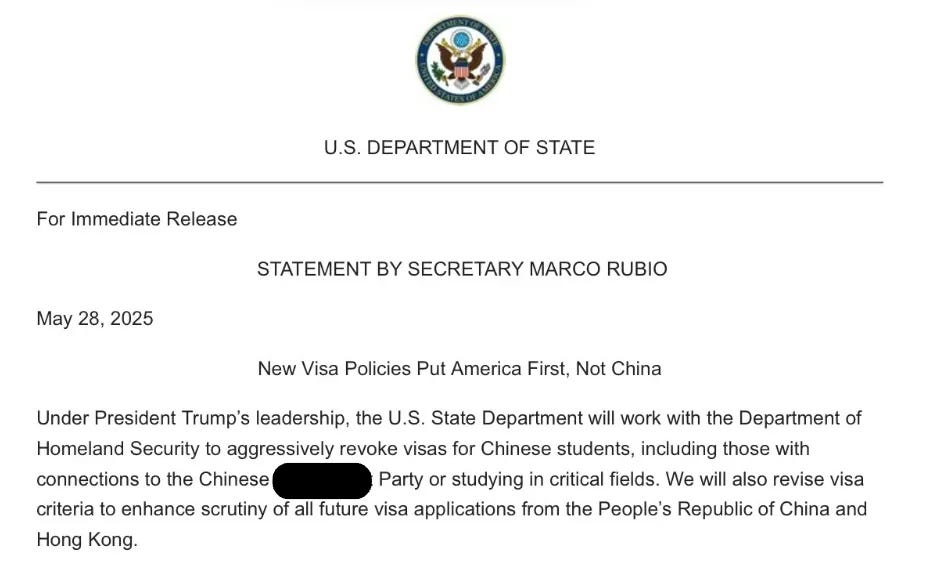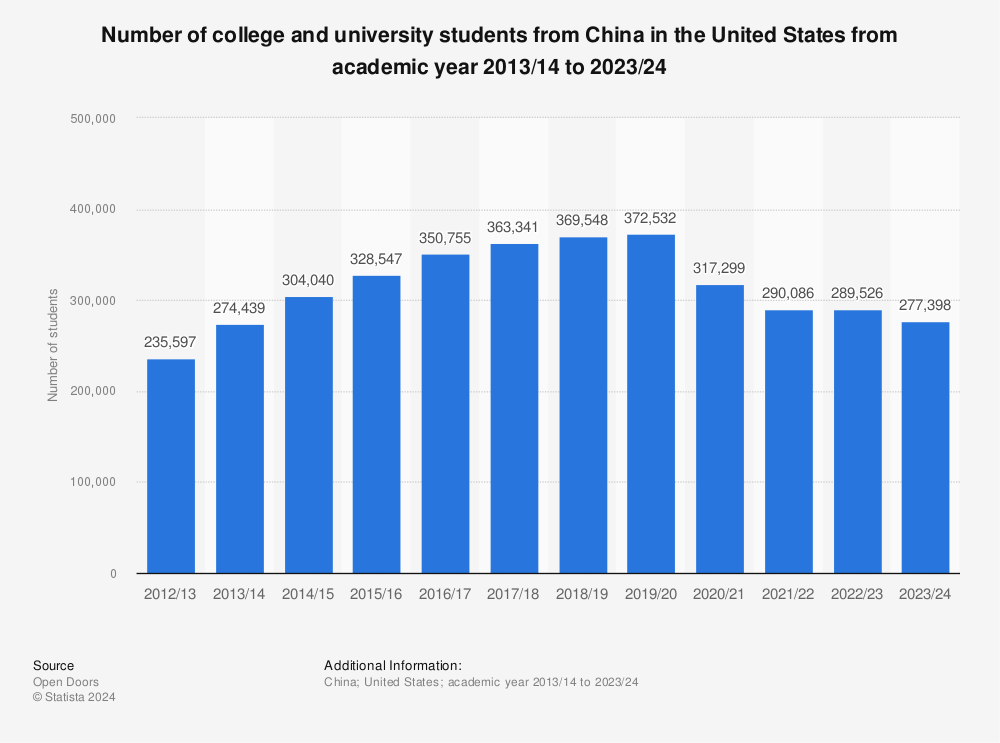Doubt and Barriers: Chinese Students’ Shared Struggle at Home and Abroad
In China and in the United States, Chinese students face growing suspicion—whether they return home after studying abroad or remain overseas to pursue their degrees. High–profile remarks and broad policy proposals have cast doubt on their loyalty and intentions. As a result, many find their career and academic plans thrown into uncertainty.
图源:Fox News
At home, Gree Electric chairwoman Dong Mingzhu sparked controversy when she declared she would refuse to hire any “returned overseas graduates” because “there are spies among them.” This sweeping statement has chilled the ambitions of countless students. Many who once planned to come back and contribute to China’s booming tech and research sectors now worry they will be branded security risks. Employers may hesitate to select candidates with overseas study experience, leaving returnees struggling to find work. The very expertise that China needs—in fields like artificial intelligence, clean energy, and biotechnology—is slipping away as talent delays its return or chooses to stay abroad.
In the United States, the mood is no less tense. Secretary of State Marco Rubio announced plans to “accelerate” the revocation of visas for Chinese students linked to certain backgrounds or enrolled in so–called “critical” fields. At the same time, future applicants face tighter social-media checks and deeper background reviews. These measures build on earlier restrictions and come amid a sharp drop in Chinese enrollment at American universities—from around 370,000 in 2019 to roughly 277,000 in 2024. For many students, the fear of losing their visa has already upended study plans and research projects.
Image from: Twitter
Both countries risk serious damage by treating all Chinese students as potential threats. In China, distrust of returnees could drain the talent pool and slow innovation. In the U.S., hollowing out research labs and classrooms of global perspectives and skills undermines scientific leadership. Above all, blanket suspicion deepens a trust deficit that no one gains from.
Image from: Statista
What, then, is the path forward? First, decision-makers must replace broad labels with precise, fair assessments. Each individual should be evaluated on their own record—never judged solely by nationality or field of study. Second, hiring and visa processes should rely on clear, publicly available criteria. Transparency builds confidence. Third, both nations should recognize that international students and returnees are partners in progress. They bring fresh ideas, new techniques, and global networks. Treating them as allies, rather than adversaries, strengthens our shared future.
Image from: Fox News
Chinese students—whether they choose to come home or study abroad—deserve the chance to pursue their dreams without undue suspicion. By adopting targeted vetting, open dialogue, and consistent standards, China and the U.S. can turn a growing crisis of trust into a renewed opportunity for collaboration and innovation.






